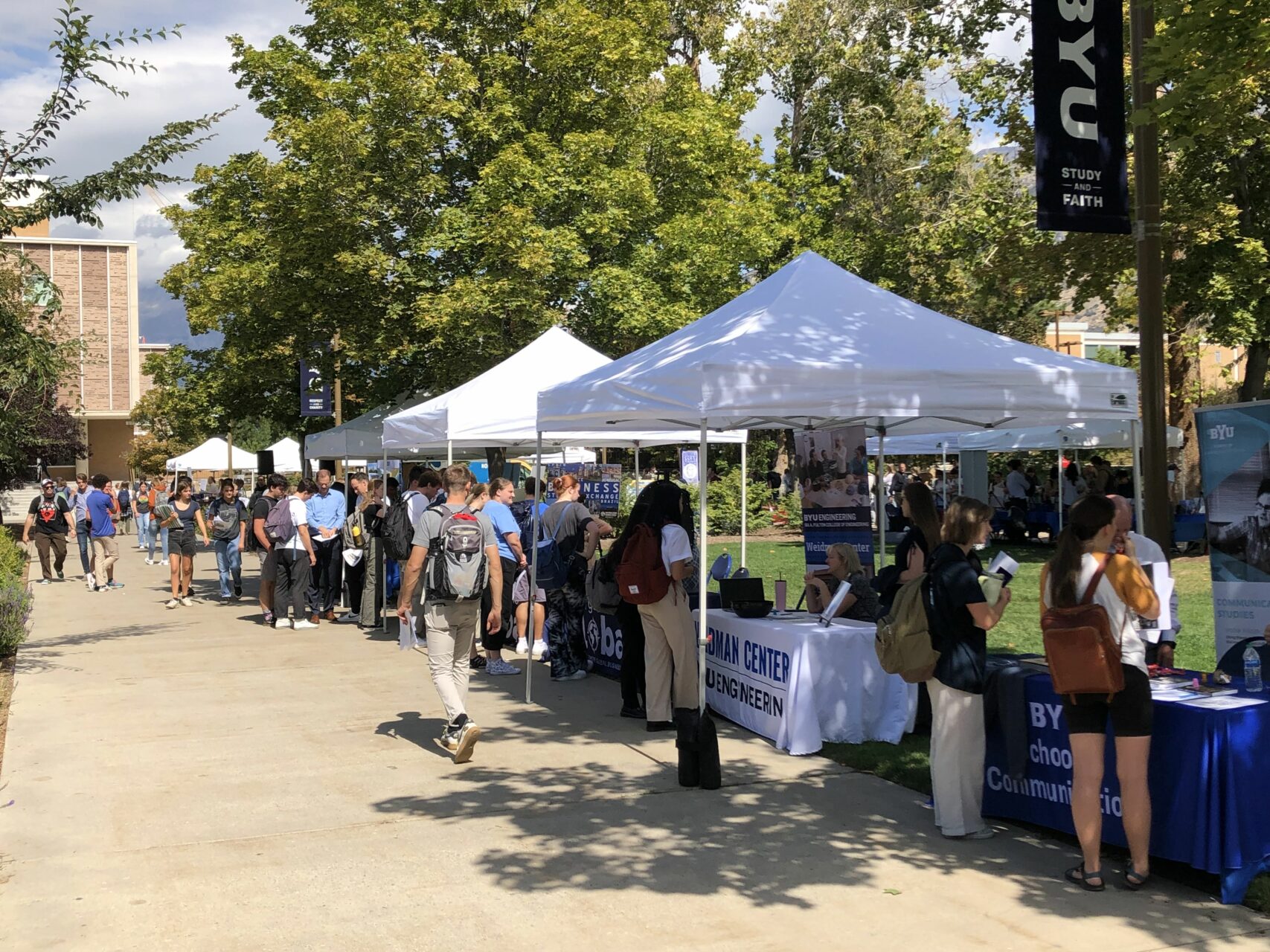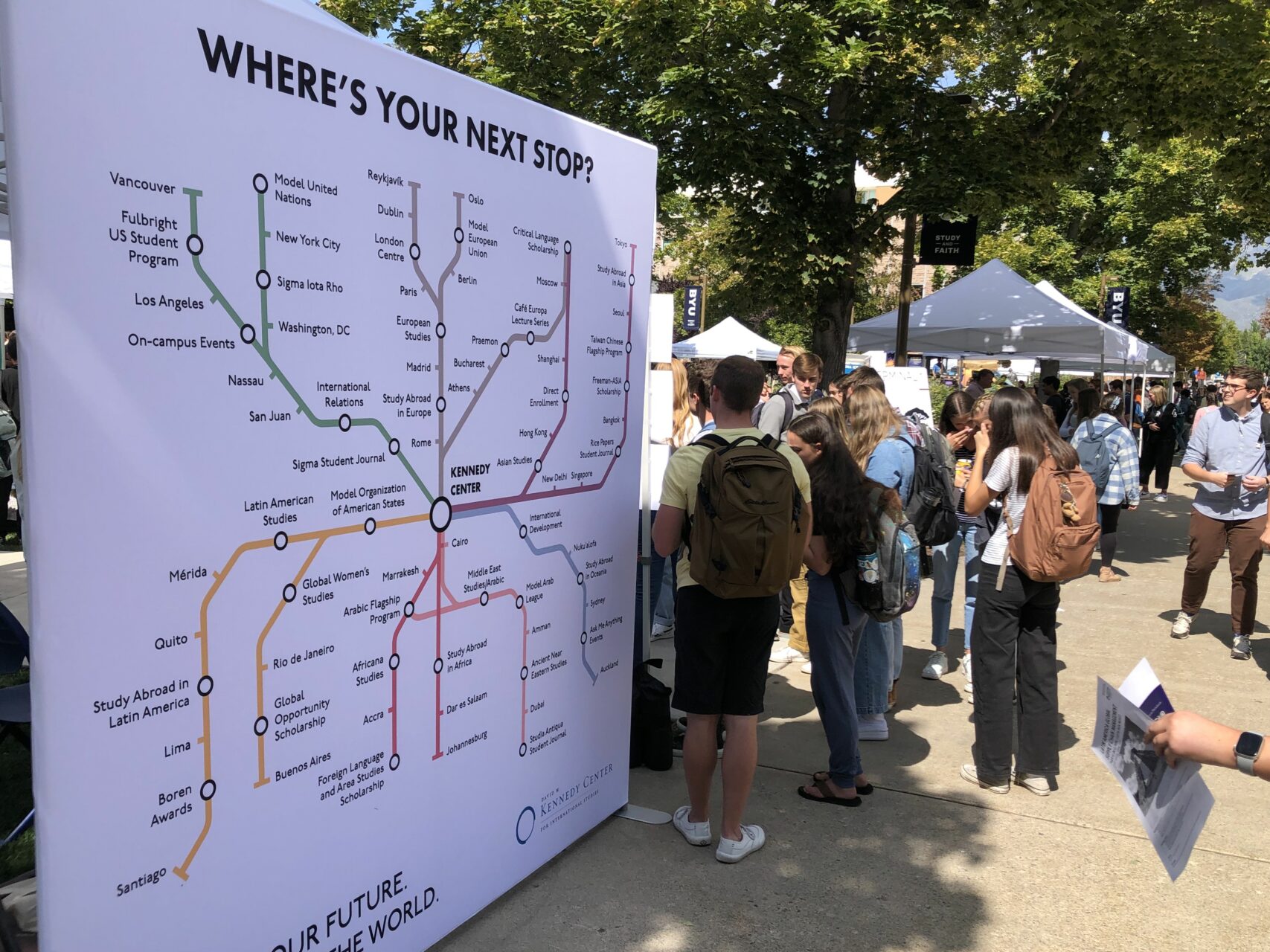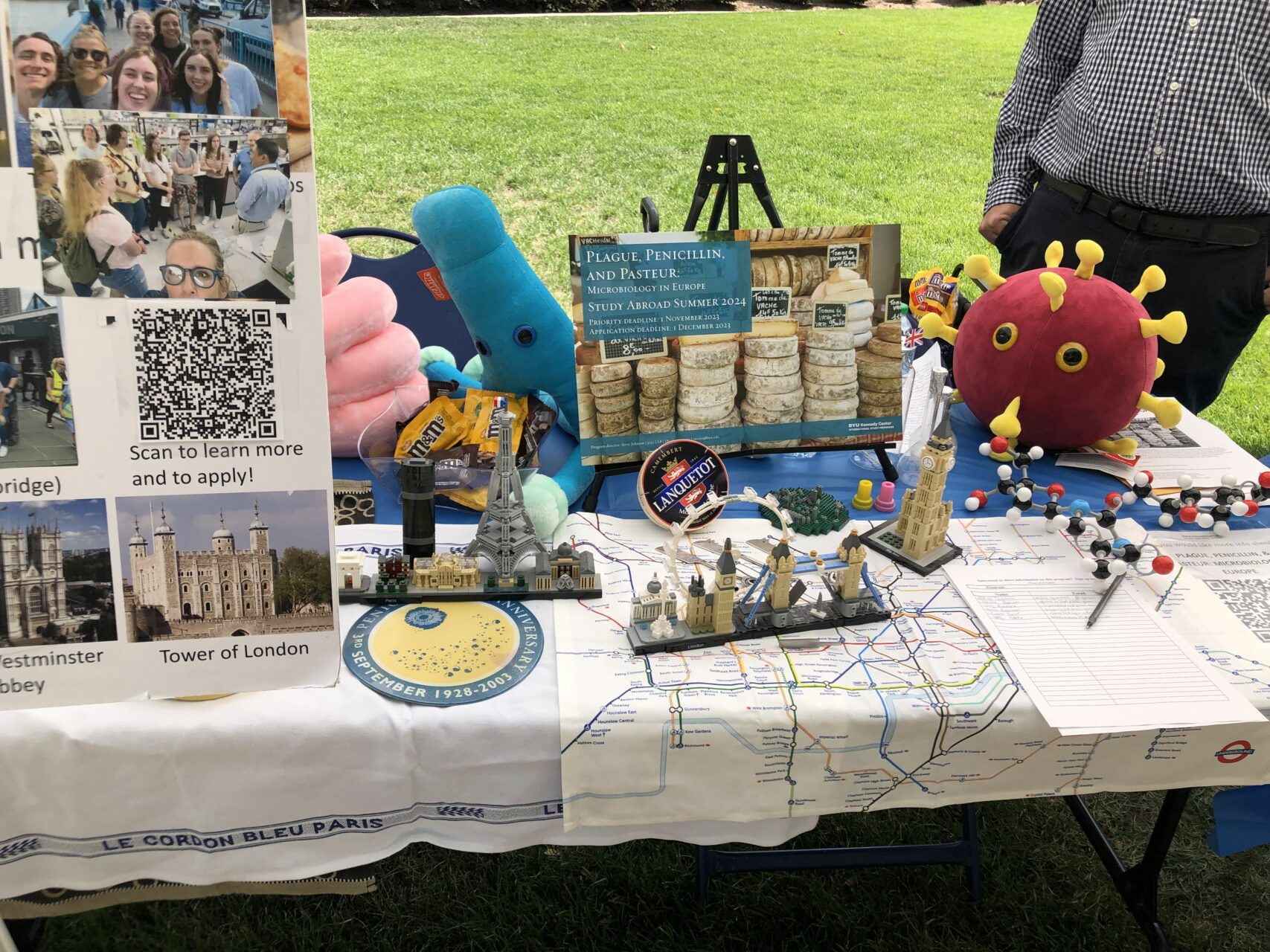
Chocolate tasting in Germany, gardening in the Mediterranean, going on an African expedition and enjoying Italian living in Siena are some of the many study abroad trips and internships BYU students can participate in.
BYU boasts an impressive variety of experiential learning opportunities. With more than 200 international programs in 60 countries, BYU has one of the top 20 study abroad programs in America.
On Sept. 21, hundreds of students had the opportunity to learn about the many study abroad programs BYU offers.
Enjoying live music and free shaved ice, students walked throughout the army of booths located just east of the Herald R. Clark Building.
“There’s no better way to dive into a topic and learn and immerse yourself because it’s not like a class where you are there a couple hours a week. You’re living the culture, you’re living the experience for weeks or months,” BYU professor James LeCheminant said.
LeCheminant, department chair of the College of Life Sciences, Nutrition, Dietetics and Food Science, runs a study abroad program in Italy, which examines the health and lifestyle across diverse regions of Italy.
“The focus is certainly diet and food, but there’s a lot of activity, a lot of exercise,” LeCheminant said. “And it’s hard not to mix in culture with this, too.”
Students on the Activity, Nutrition, Cuisine and Culture in Italy study abroad program can expect pasta-making, pizza-making and olive oil testing on their trip, LeCheminant said.
“You really learn the spiritual aspects of food-making, and how food-making is a way to show love,” he said.

A brand new study abroad opportunity from the Plant and Wildlife Sciences department takes students to South Africa, Namibia, Botswana and Zambia as they focus on the medicinal properties and the uniqueness of the plants grown there.
Caroline Vermeulen, who put together the study abroad, grew up in South Africa and Namibia and has a special connection to the region.
“My parents and I were the only members of the Church in the whole country. There was no chapel, no members. So for me to be able to go back with a group of students and to share my experiences where my testimony was formed, I think is going to make this program very unique,” she said.
Students will study the Namid desert, which is the oldest desert in the world, Vermeulen said.
“In the Namid desert there is a plant that has been living since the birth of Christ, it’s that old,” she said.
A micro and molecular biology department trip, Plague, Penicillin & Pasteur: Microbiology in Europe, offers students the chance to spend a month in France, the Netherlands and England while exploring a region responsible for the birthplace of modern medicine.

“This will be the third year that the program is going,” BYU professor Steve Johnson said.
Students start in the morning and discuss what they will be seeing that day. Their destinations include London, Cambridge, Oxford, Amsterdam and more.
“In the late afternoon you have your free time to go and see the sights … we’ll go to the Eiffel Tower, we’ll go to the Louvre, we’ll go to some of the cool museums in London,” Johnson said, “If you wanted to, every night that we are in London you could go to a different show.”
The real life experience from these study abroad trips is extremely beneficial when applying for jobs, he said.
“It just gives them tons of things and expands their perception of science and disease and medicine by actually seeing where these things happen and how they were done compared to how we do things now,” Johnson said.
Students in the program are able to participate in disease diagnosis using London plague pit skeletons as well as visit Fleming’s lab where penicillin was discovered, he explained.
“It’s living the history of microbiology and infectious disease without having to catch it,” Johnson said.
If any of these study abroad trips interest you, you can find more about them here.




